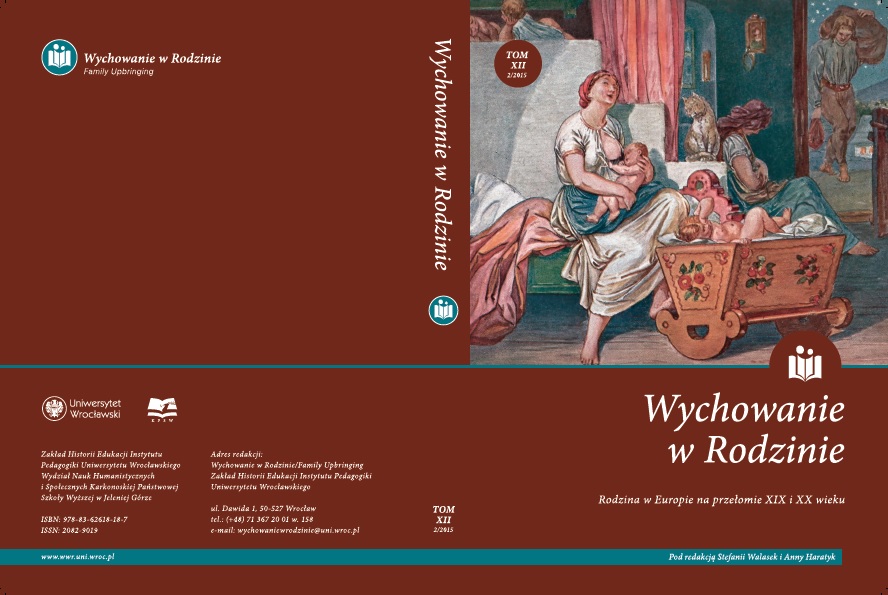Międzygeneracyjna transmisja wartości
w rodzinach polskich w Drugiej Rzeczypospolitej
w kontekście ideologii wychowawczej państwa
w latach 1918–1939
Intergenerational transmission of values in Polish families in the Second Republic in the context of educational ideology of the state in years 1918–1939
Author(s): AGATA SAMSELSubject(s): History, Social Sciences, Sociology, Family and social welfare
Published by: Zakład Historii Edukacji w Instytucie Pedagogiki Uniwersytetu Wrocławskiego
Keywords: family; education; values; culture; Poland 1918–1939
Summary/Abstract: The intergenerational transmission of values is an indispensable condition of the continuity of a culture, and thus it guarantees the survival of the group. Entering the world of values is inherent in the education of the young generation. The oldest andmost important educational environment is the family, where the child’s personality is shaped and its identity is created. As a result of the intergenerational transmission of values the child acquires knowledge, which is the sum of the experience of previous generations. In addition to acquiring the ability to distinguish good from evil, and learning the basic principles and standards governing relationships, the child assimilates a number of elements that make up the culture – language, history, tradition, beliefs,symbols of religious and national customs and habits.A system of values in the interwar Polish society was based on the canon formed during the partitions of the country. Great importance was attributed to the values which were conducive to maintaining its cultural and national identity. Major positions in the hierarchy of values were taken by: homeland, family, the Catholic religion, the history of the country, tradition, national symbols. Among the highly regarded and desirable moral qualities were: courage, the willingness to make sacrifices, dedication,diligence, responsibility, fairness and honesty.Despite the large social stratification in the Second Republic a certain convergence of values can be observed. They were the subject of intergenerational transmission within Polish families, regardless of their social status, wealth, or education. The characteristic feature of the interwar period was also the compatibility of the system of values declared and inculcated in the family with the ones propagated by the Church, aswell as with those which were inculcated by state educational institutions. The result was the uniform upbringing of young people, with clear and consistent educational goals, consistently accomplished by the most important educational environments cooperating with each other.
Journal: Wychowanie w Rodzinie
- Issue Year: XII/2015
- Issue No: 2
- Page Range: 51-82
- Page Count: 32
- Language: English, Polish

